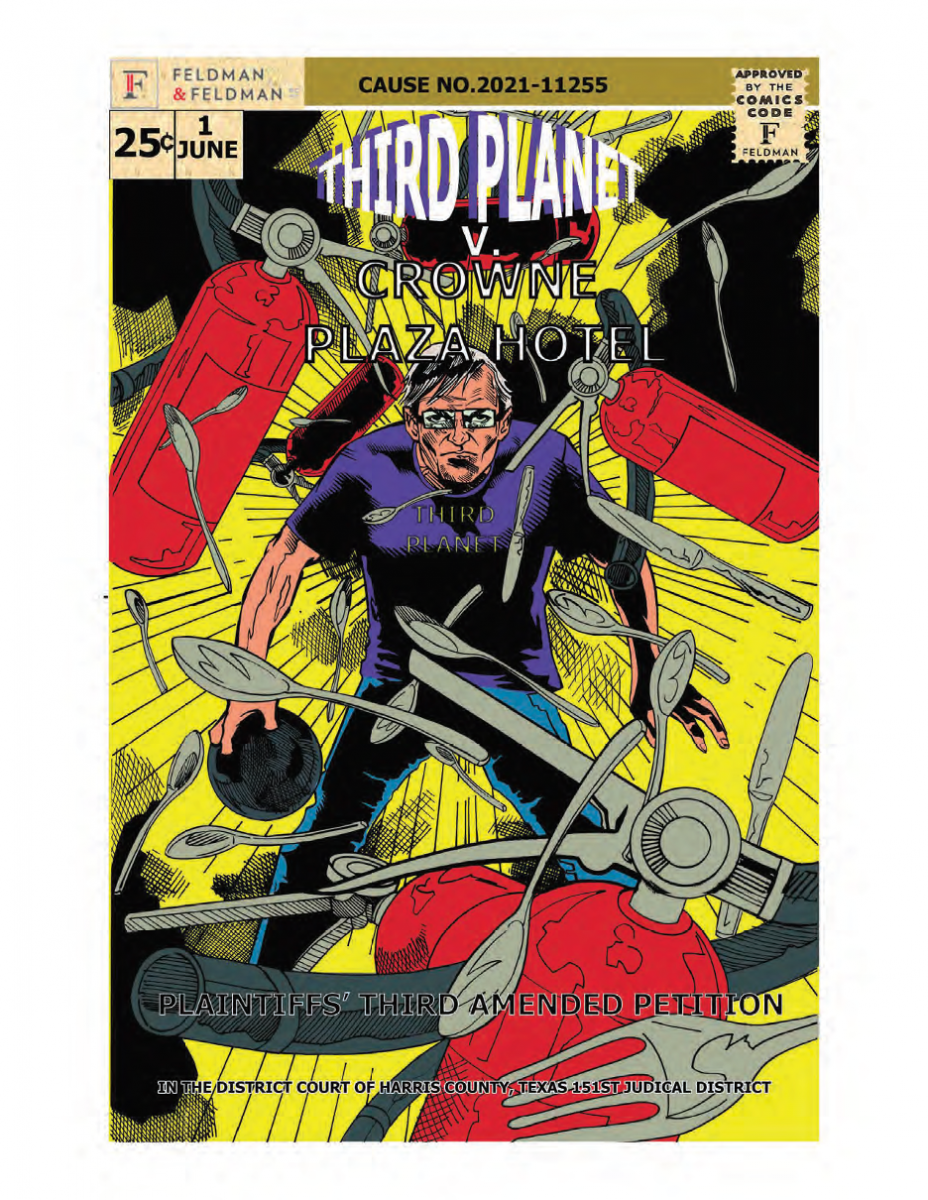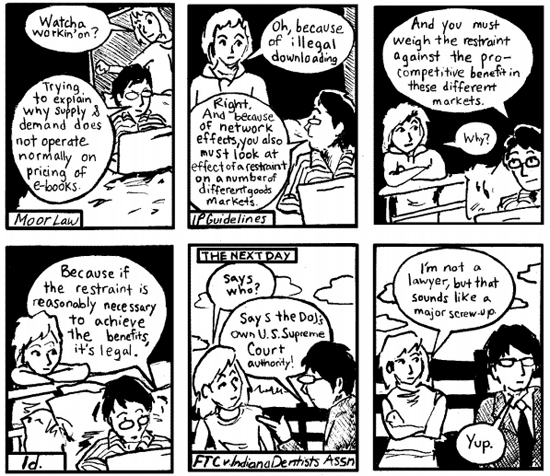
Clobbered by falling extinguishers! Fires erupting in the parking lot! What is a comic shop to do? Fight back with comics!
A recent court filing on behalf of Third Planet Sci-Fi and Fantasy Superstore included a thirteen-page comic explaining their complaints. Third Planet’s case is against the neighboring hotel, Crown Plaza. The complaint contains repeated instances of objects hurled from the hotel balconies onto the store’s roof and into the parking lot. Reportedly, in a single day,
“Hotel guests, residents, tenants, patrons, customers, or visitors launched at minimum fourteen large metal-cannister fire extinguishers from the Hotel onto Third Planet’s roof and parking lot.”
Apparently, the roof received enough damage that the next rainstorm wreaked havoc on the store. If water wasn’t enough, Third Planet also had to deal with fire. Allegedly, cigarettes thrown from the hotel have caused fires in the parking lot.
Third Planet, located in Houston, Texas, is a legendary comic shop. Opened in 1975, it is said to be the longest-running sole proprietor comic shop in the nation. After surviving for so long and putting up with more than enough abuse, Third Planet filed the petition to sue.
Law firm Feldman & Feldman, who is responsible for the petition, explained the reasoning behind the comic in section five, which they appropriately named Origin Story.
Defendant, Pacifica has previously filed special exceptions, complaining that it could not sufficiently understand the claims and allegations against it. To aid in clarifying the facts of this case, plaintiffs provide the facts in illustrated form.
Though presented in a tongue-in-cheek way, the inclusion in this filing displays the power of text and image. There is no doubt that the claims made are clear and accessible and will be “sufficiently understood” by the defendant. From the rain of extinguishers headed toward the building to T.J. Johnson, the owner of Third Planet, standing in his store, drenched during a storm, the comic illustrates the alleged events and clarifies the repercussions.

This is not the first time an inventive lawyer has used the comics medium to relay information. In 2012, Bob Kohn created a five-page amicus brief as a cartoon. The brief was in opposition to an antitrust settlement regarding e-book pricing. Kohn was told by U.S. District Judge Denise Cote that his brief could be no longer than five pages. He decided the best way to convey his information in such a small space was through comics. In addition to keeping it to five pages, Kohn also adhered to the court rules by using a 12-point or larger font and one-inch margins. Though Kohn was not in agreement with the final ruling, his comic made the issues in the case much easier to access and digest for the public.
No doubt in both examples, using a comic in official paperwork draws attention to the case. Looking past the publicity, it exemplifies the power of comics to relate ideas and concepts in a clear way. I’m crossing my fingers for the day when I’ll be able to follow all court cases in comics form.